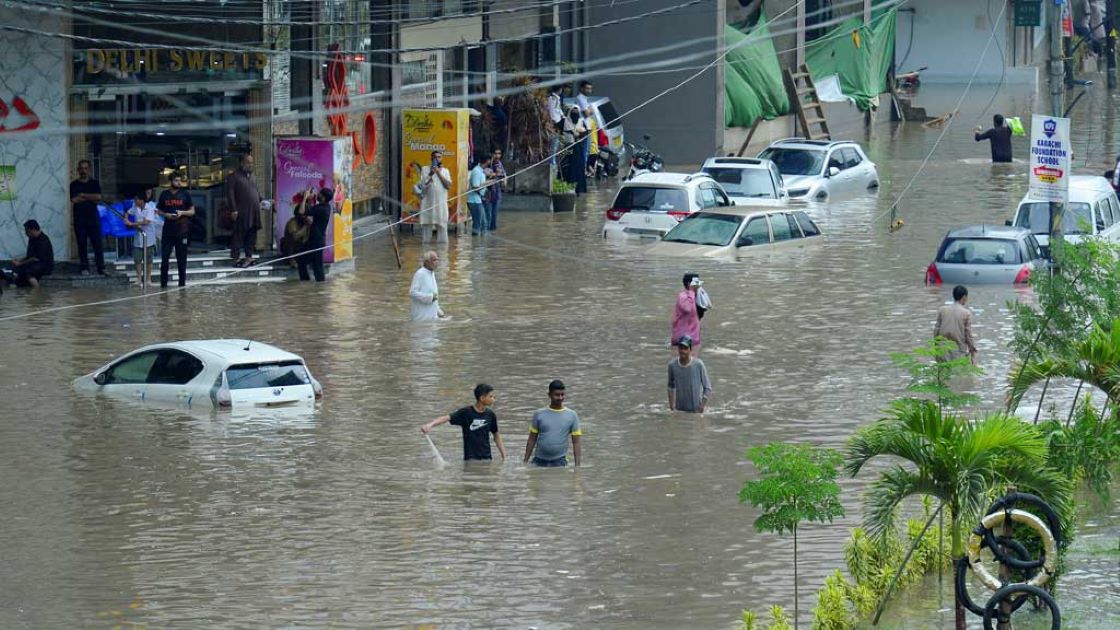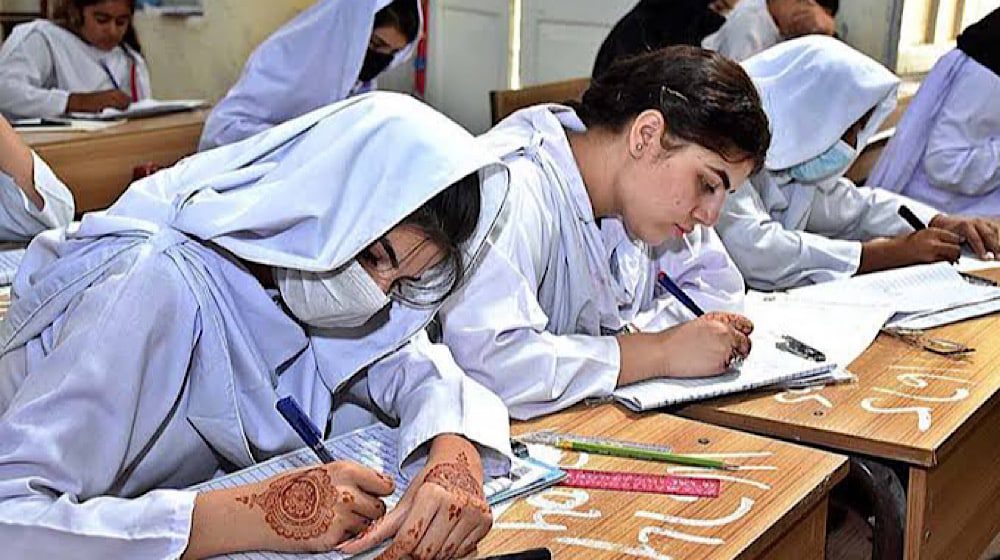Karachi, the largest city in Pakistan is currently experiencing one of the most challenging monsoon seasons. Almost every element of daily life has been disrupted by torrential rains which have overflowed entire city and turned busy streets into rivers. Education has been one of the most severely affected sectors of the disaster’s.
As authorities put the safety of students, staff, and teachers first, Karachi School Closures have been forced. Thousands of students now lack access to classrooms as a result of these closures raising grave concerns about learning gaps, the end of the school year and the city educational future as a whole.
The Scale of the Flooding
Karachi already uncertain infrastructure has been overloaded by the unexpected rainfall by this year monsoon. Low lying neighborhoods were among the first to be affected as floodwaters quickly flooded homes, businesses and public areas. Many areas remained flooded for days. As a result of the city drainage system which was already famous for its inefficiency failing to handle the enormous volume of water.
Roads that usually carry the city heavy traffic became impossible to use with cars and buses stranded in waist deep water. For schools the situation was even worse. Floodwaters damaged furniture, entered classrooms and made the environment dangerous for both teachers and students. Closures were not only a precaution also a necessity because school buildings frequently became unfit for use.
Immediate School Closures
The intensity of the rain forced city officials to close both public and private schools. It was a tough choice, it was necessary to shield students and staff from the risks posed by floodwaters and dangerous structures.
Even schools located in areas with relatively less flooding were forced to close. Due to parents difficulties navigating flooded streets and school buses failure to reach neighborhoods attendance became all but impossible to maintain. The failure of students to commute safely led to the closure of many structurally sound schools.
Impact on Students
- Students, a majority of whom had been dealing with educational difficulties from the COVID-19 pandemic, have been severely impacted by school closures.
- The monsoon flooding has caused yet another break in learning just as the education sector was starting to bounce back from earlier setbacks.
- Since missed classes and lesson delays have a direct impact on exam preparation students are concerned.
- Teachers worry that if the curriculum is not finished on time the overall quality of education may suffer.
- It will be more difficult for teachers and students to catch up the longer schools are closed.
Parents Concerns
For parents the school closures present a dual challenge ensuring their children safety while also worrying about their academic progress. Families in Karachi are deeply concerned that extended closures will lead to a widening gap in learning. Working parents face an additional burden. As children staying home often require constant supervision.
For families without reliable childcare options, this situation is particularly difficult. At the same time parents are anxious about how their children will adapt when schools eventually reopen. How the lost time will be compensated in an already tight academic calendar.
Online Learning as a Temporary Solution
Some private institutions have swiftly switched to online instruction as a stop gap measure in reaction to the closures. Instructors are sharing projects electronically and conducting lessons via video conferencing platforms. This change has given many students a sense of consistency in their schooling and helped close the schooling gap.
However, there are a lot of obstacles to online learning in Karachi. Not every student has access to electronic devices or dependable internet connectivity. Since many families cannot afford laptops, tablets or reliable internet services students in these households are at a disadvantage. This digital divide emphasizes how beneficial online education is. But it cannot take the place of traditional classroom instruction for most Karachi children.
Government Response
- The public has assured by city officials that every effort is being made to return things to normal as soon as possible.
- Before reopening school buildings will be inspected for safety purposes and water will be drained from the area.
- Students safety continues to be the top priority according to authorities.
- These initiatives according to critics are reactive instead of proactive.
- Karachi inadequate urban planning The crisis’s primary causes are thought to be insufficient drainage systems and a lack of infrastructure investment.
- Without long term fixes the city will probably experience similar problems each monsoon season and education will continue to face numerous setbacks.
Long-Term Challenges
Deeper concerns regarding Karachi readiness for natural disasters are brought up by the city recurring cycle of monsoon flooding. Many neighborhoods schools are just not built to survive such severe weather. The education sector is extremely vulnerable due to a combination of inadequate drainage systems, weak structure of buildings and a lack of emergency preparation plans.
Karachi schools will continue to be in danger unless there are major reforms. Every year, closures cause disruptions in the classroom cause students to lag behind and force teachers to adjust their already busy schedules. In addition to having an impact on academic results. This cycle erodes parents and students faith in the stability of the educational system.
Effects on Teachers and Staff
- Teachers and staff have also been impacted by school closures.
- The floods have caused damage to the homes of a few staff members and teachers.
- Others can not get to school because of flooding and blocked transit routes.
- The uncertainty of when educational institutions will reopen causes teachers to constantly adjust their lesson strategies, tests and schedules which adds to their stress levels.
- Because they are in charge of staff and student safety as well as coordination administrators face even more difficulties. Coordinating with authorities and getting schools ready to open.
- During this crisis teachers have experienced a significant and often overlooked emotional and professional toll.
Possible Solutions for the Future
The Karachi crisis emphasizes how urgently both immediate and long term fixes are needed to safeguard education during severe weather conditions. To lessen the effects of such delays in the future a number of actions can be taken.
The city must first invest in stronger and more efficient drainage systems in order to prevent widespread urban flooding. Inadequate infrastructure will result in the same amount of damage from each heavy downpour.Second to ensure classroom safeguarding and effectiveness even during intense downpours, schools must be constructed or refurbished to be more flood resistant.
Third, plans for emergency preparedness should be created so that learning institutions can quickly switch to online or other learning methods in the event that closures are required. Lastly, the government needs to set aside enough money to fortify the education sector regarding severe weather so that schools can continue to operate safely and effectively in the face of such difficulties.
A Platform for Education and Awareness
At Parhlo Pakistan we consider education to be the cornerstone of development. Our platform is dedicated to providing helpful resources, information and viewpoints regarding Pakistani education to parents, teachers, and students. By offering test taking resources, previous exams and updates on academic developments. ParhloPakistan aims to bridge the knowledge gap between educators and learners. during crises such as the monsoon flooding in Karachi. We are committed to supporting students by giving them easy access to educational resources that help them stay on track, even when education are not in session.
Conclusion
The closure of Institutes during the city traditional monsoon flooding serves as a stark reminder of Karachi’s susceptibility to natural disasters. While protecting students safety is obviously the right thing to do, the interruption to the learning process emphasizes how urgently long term solutions are required. To guarantee that students can continue learning even during challenging times. Reforms ranging from enhanced facilities to emergency preparedness must be given top priority in Karachi.
Survival in teachers, parents, and students is admirable but it is insufficient on its own. To guarantee that education is accessible, continuous and safe, society and government representatives must cooperate. Karachi students will continue to experience academic setbacks each monsoon season unless underlying problems are resolved. Everyone must continue to prioritize ensuring the city future generation receives an uninterrupted education.




